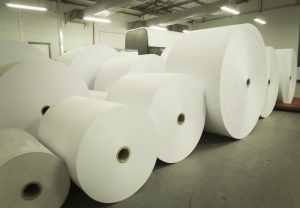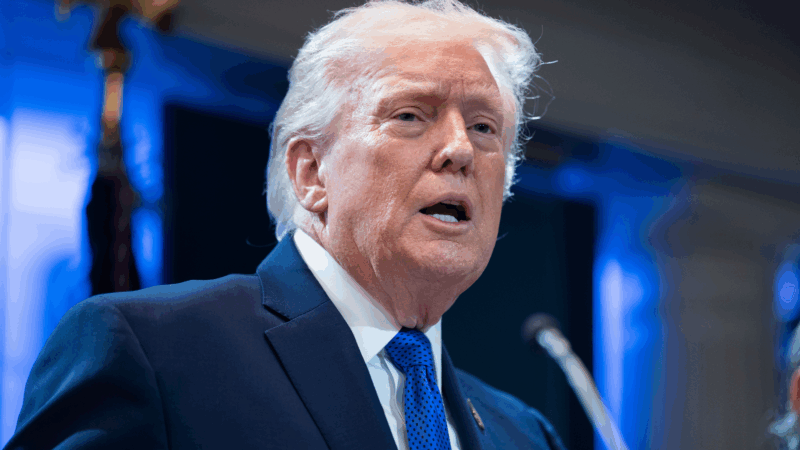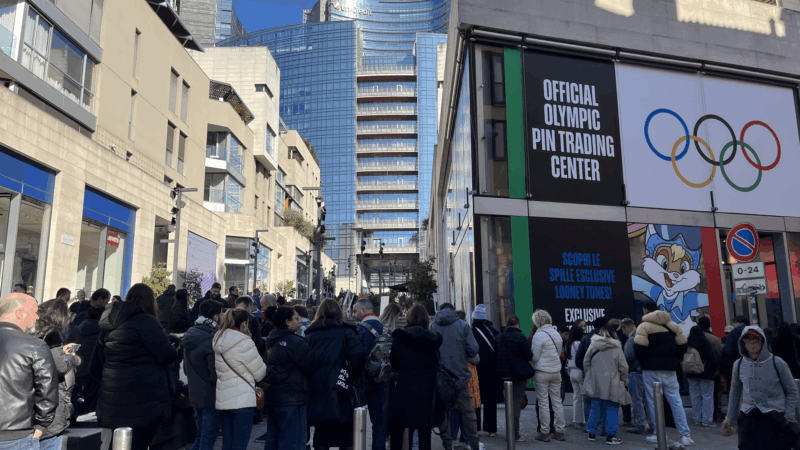Tariffs Imposed By U.S., Trading Partners Hit Home In Alabama

By Robert Carter
President Donald Trump is battling with countries he says are unfairly hurting America’s foreign trade, but some of his moves may adversely affect industries in Alabama in the process.
Trump’s new tariffs against China, Canada and the European Union — some proposed, some already in effect — are concerning the state’s auto manufacturers, farmers and newspaper publishers, and they have prompted responses from both industry representatives and politicians. In particular, Doug Jones, Alabama’s newly elected U.S. senator, has criticized an investigation by the Department of Commerce that may cause price hikes in vehicles made in Alabama using parts imported from abroad.
The range of tariffs is wide but fluctuating, as Trump continues to negotiate with trading partners. Even as he announces additional tariffs and other countries retaliate by increasing their own against American exports, the president has said that he would remove all tariffs if other countries would do the same.
Here are three areas where Alabama businesses and workers could get caught up in a potential trade war:
Auto Manufacturing
Thanks to three major manufacturing facilities in operation and a fourth about to begin construction, Alabama now ranks as one of the top vehicle-manufacturing states in the union; Jones has frequently said the state is third behind Michigan and South Carolina. But all those plants — Mercedes-Benz near Tuscaloosa, Hyundai near Montgomery, Honda in Lincoln and the new Toyota-Mazda joint venture in Huntsville — are owned by foreign companies and import varying amounts of parts from their home countries. Those parts, as well as finished vehicles, may face a 25 percent tariff if Trump has his way.
Trump is invoking a section of a law called the 1962 Trade Expansion Act, which calls for tariffs to be imposed if an investigation by the Commerce Department finds that imports have an effect on national security. It’s the same premise that Trump has used to seek tariffs on imported steel and aluminum, which would also affect manufacturing costs for vehicles made in Alabama. This tariff, though, also has resulted in American steel makers ramping up production; U.S. Steel recently reopened a shuttered mill in Granite City, Illinois, citing the tariff as a major reason.
Jones has ridiculed the idea that imported autos impair national security. “Bet you didn’t know your BMW’s were a threat to national security, huh?” the senator joked in a speech last week before the Birmingham Rotary Club. Jones introduced a bill, along with Sen. Lamar Alexander, R-Tennessee, that would delay the tariff and require that a study by the International Trade Commission be conducted before tariffs would be activated.
The Alabama Department of Labor says that more than 40,000 workers were employed in automobile manufacturing in 2017. Some of those jobs could be in jeopardy, as Mercedes-Benz’s parent company, Daimler, has said that some manufacturing could shift away from the Tuscaloosa County factory complex if tariffs go through. Separate tariffs are already in place for SUVs shipped from the plant to China, which is in the midst of a back-and-forth increasing tariffs covering a host of goods.
Newspapers
It’s a business that has faced huge challenges in the past decade, but newspapers are now seeing another threat that already has made one company cut back its publication schedule, and could shut others down entirely.
The Trump Administration imposed tariffs on newsprint manufacturers from Canada, which went into effect in January. The tariffs came about after one producer in Washington state complained that the Canadian mills were dumping newsprint on the American market with help from subsidies by the government of Canada.
That caused a sharp hike in the price of one of the biggest expense items of newspaper publishers, with some smaller companies also having a hard time finding enough newsprint at all. Many U.S. paper mills that formerly produced newsprint have either closed or switched over to making corrugated boxes, which uses a paper stock similar to newsprint.
“It has had a terrible effect, almost crippling in some situations,” said Felicia Mason, executive director of the Alabama Press Association. “Smaller newspapers are having problems with supply. The larger ones buy in such bulk, but they’ve seen increases upwards of 20 percent.”
The mill that filed the complaint leading to the tariff “is not capable of supplying all the newsprint in the United States,” Mason said, adding that mills supplying newsprint used to be spread throughout the country, including several in Alabama. The closest now is in Grenada, Mississippi.
This comes at a time when falling circulation and advertising are already taking a toll thanks to the rise of online news, much of which is available to readers for free. Several Alabama newspapers made cutbacks in staff and days of publication well before the tariffs came along, most notably the Advance Publications trio of The Birmingham News, The Press-Register (Mobile) and The Huntsville Times, as Advance focuses on digital media. Other Alabama dailies, such as The Anniston Star, have stopped printing one day a week, usually on Mondays.
With the increased costs in newsprint, two more newspapers have reduced their print schedules. The Decatur Daily and The TimesDaily (Florence) stopped printing Saturday and Monday editions.
“One of the reasons for the shift in frequency is newsprint, our single-largest expense outside of payroll. Our newsprint cost is increasing a minimum of 22 percent, or $300,000, in 2018 for the company. Almost 40 percent of that increase follows a new tariff levied on newsprint Jan. 8,” said Decatur Daily Publisher Clint Shelton in a statement to readers. Shelton’s family has owned the newspaper since 1912 and purchased The TimesDaily in 2009 from The New York Times Regional News Group.
Elsewhere in the country, the tariffs have resulted in one community newspaper in Ohio closing, while numerous others have cut back in page counts, switched to smaller page sizes, and/or laid off employees.
In the past two weeks, the Commerce Department reduced the tariffs but did not eliminated them, Mason said.
Publishers have tried to get the tariffs removed, and their efforts may get a boost from the International Trade Commission, which already has held hearings into the matter.
“Nineteen members of Congress testified before the commission in July, and two of those 19 were from Alabama — Sen. Doug Jones and Rep. Robert Aderholt,” Mason said. Aderholt, a Republican, represents the district that’s home to the Decatur Daily and The TimesDaily.
Additionally, Republican Sen. Susan Collins and independent Sen. Angus King, both of Maine, introduced a bill called the Protecting Rational Incentives in Newsprint Trade Act of 2018, better known as the PRINT Act, which would suspend the tariffs while the Commerce Department investigates the effects on the newspaper industry. Jones has co-sponsored the bill in the Senate; in the House of Representatives, Aderholt and Alabama GOP colleague Bradley Byrne are co-sponsors.
Agriculture
But those exports have all but vanished, after China imposed a 25 percent tariff as payback for Trump’s tariffs. It was put on a variety of goods China exports to the U.S. in the escalating trade battle between the world’s top economies. Soybeans are the biggest commodity targeted by the retaliatory tariffs.One of the biggest effects from increasing trade hostilities between the U.S. and other countries has been a retaliatory tariff imposed by China on agricultural products imported from America, particularly soybeans, which are China’s biggest agriculture import by a long shot. According to Bloomberg News, the U.S. sells $20 billion in agricultural goods to China, with soybeans alone accounting for more than 60 percent of that total. In 2016, the Department of Agriculture statistics showed that more than $14 billion in American soybeans were sold to Chinese customers.
While the effect on soybean trade has drawn the most attention because of the huge volume involved, China also set tariffs on other oilseeds, grains, beef, pork, fruit, vegetables, dairy products and tree nuts, according to the Alabama Farmers Federation.
Mitt Walker, the director of national legislative programs for the Alabama Farmers Federation, says that soybeans are not as important a crop to the state’s farmers as they are in areas like the Midwest, but they are grown in significant amounts, and the tariffs have affected prices farmers get when they sell their crops.
“The National Agricultural Statistics Service said last year we planted about 350,000 acres of soybeans in the state, and in 2018 we’re at about 360,000 acres,” Walker said. “That produced about $155 million last year. It’s a valuable crop to our farmers.”
Walker said the tariffs have caused “downward pressure” on prices, but there are other market forces such as weather, crop disease and competition from other countries, such as Brazil.
“Most of our farmers around the state, and I’ve talked to quite a few of them, say that they understand the logic behind imposing these tariffs on China, and it’s unfortunate that they are the guys getting hit,” Walker said. “When you look at the trade balance, agriculture is one of the bright spots; we have a surplus in trade. If a country wants to retaliate, this is where it hurts, so it’s logical that it’s the decision they made. A lot of (farmers) understand the rationale behind it, but they’re hoping for a fairly quick resolution.”
The tariffs against Chinese goods were announced because of that nation’s large imbalance of trade with the United States, as well as other issues such as theft of intellectual property by Chinese companies, such as illegal piracy of audio and video recordings, video games and computer software. Walker said that some of that intellectual property also concerns agriculture, such as seed technology and machinery.
“Millions of dollars have been spent over the years to develop a better plan in the case of soybeans,” Walker said, “and we see other governments wanting to steal that technology.”
In addition to soybeans, Alabama farmers have seen cotton and pork prices affected by tariffs, Walker said.
The Trump Administration is demanding that the trade imbalance be reduced by $200 billion.
Secretary of Agriculture Sonny Perdue announced in July that the federal government would give as much as $12 billion in aid to farmers affected by the tariffs and subsequent loss of trade. That’s meant as a bridge until the U.S. and China settle their differences.
“Our farmers will tell (you) they understand the logic, but they’ll also tell you they don’t want this to be a long-term situation where they have aid coming in to get them through. They want to derive their income from the marketplace,” Walker said.
There is hope that the trade battle may be resolved soon. On Thursday, the Trump Administration announced that trade representatives from the U.S. and China will meet later in August. It will be the first official meetings between the two sides since the last round of talks broke down in June.
Mississippi health system shuts down clinics statewide after ransomware attack
The attack was launched on Thursday and prompted hospital officials to close all of its 35 clinics across the state.
Willie Colón, salsa pioneer, has died at 75
The South Bronx bandleader took the Latin genre to new heights while recording for Fania Records.
Vietnam Veterans sue to block proposed ‘Independence Arch’ near Arlington National Cemetery
The lawsuit challenges President Trump's plans for "Independence Arch," a 250-foot structure proposed for Memorial Circle.
Trump to raise global tariffs to 15%
President Trump previously said he would implement 10% global tariffs after the U.S. Supreme Court struck down his tariff policies.
Pin trading has taken over the Olympics. Here’s what it’s like in Milan
Pin trading has become a hallmark of the Olympics in recent decades — and not just for athletes. An official trading center in Milan was a hotspot for longtime collectors and curious newcomers alike.
US military airlifts small reactor as Trump pushes to quickly deploy nuclear power
The Pentagon and the Energy Department have airlifted a small nuclear reactor from California to Utah, demonstrating what they say is potential for the U.S. to quickly deploy nuclear power for military and civilian use.







